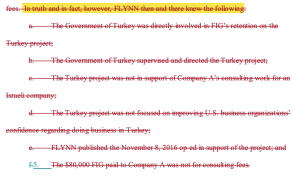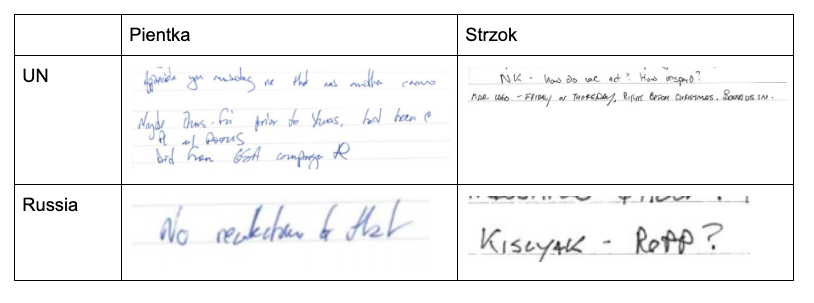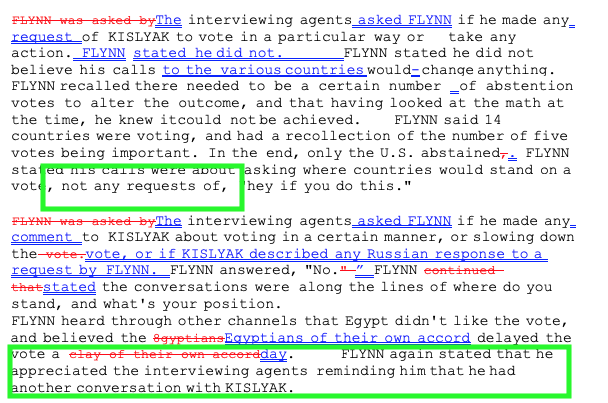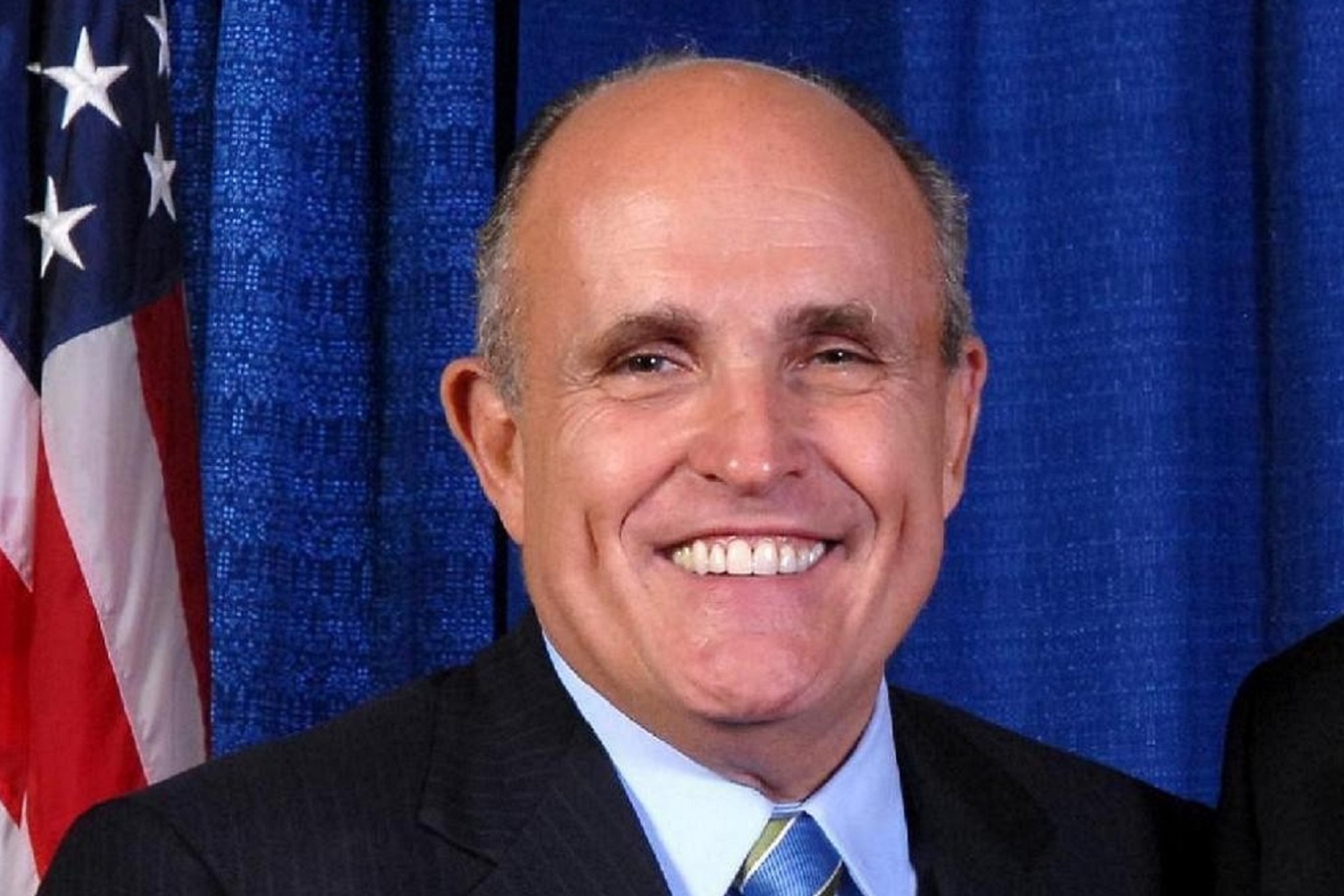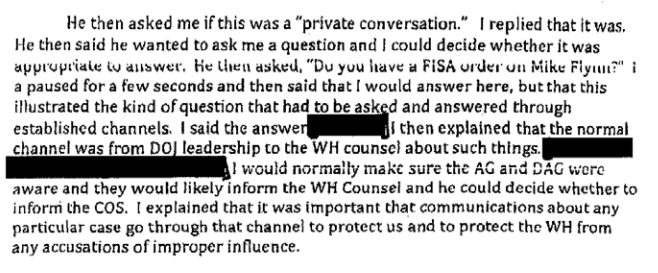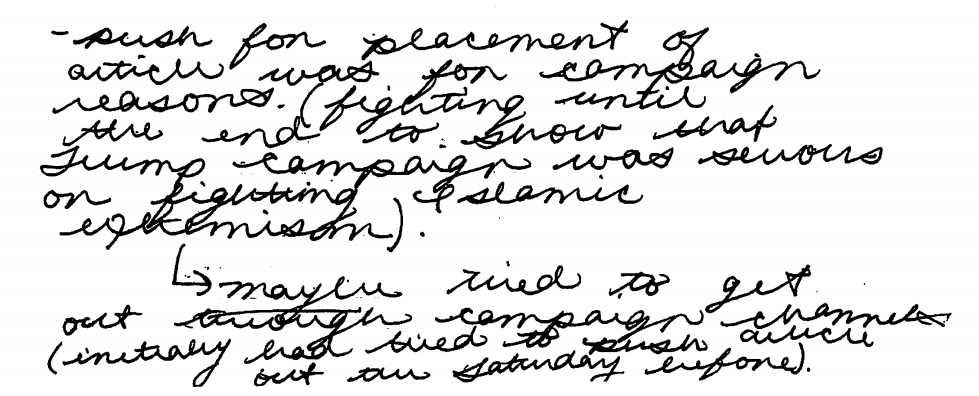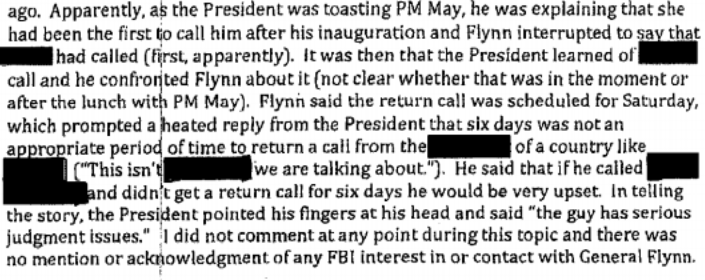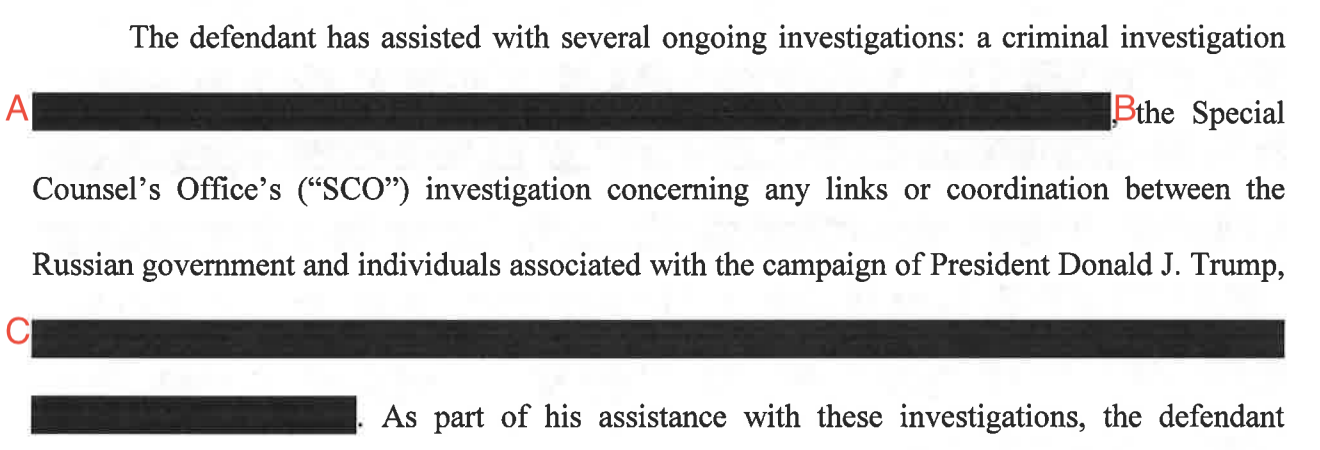In a Filing Claiming He’s Innocent, Mike Flynn’s Lawyers Accuse Mike Flynn of Lying Under Oath
Seven months after hiring Sidney Powell to blow up his plea deal, Mike Flynn has formally moved to do just that. The filing claims he is doing so because the government was mean — or more formally, “bad faith, vindictiveness, and breach of the plea agreement.”
Flynn claims being asked to testify in accordance with his grand jury testimony required him to lie
The core of Flynn’s argument is that the government newly asked him to testify that he knowingly lied in his FARA filing last summer, which led him to refuse, which led the government to decide not to use him as a witness and instead attempt (unsuccessfully) to name Flynn as a co-conspirator to access what his testimony would have otherwise given, which led them to have Judge Anthony Trenga throw out their convictions post-trial.
It’s the same argument that Flynn made last summer, even before the trial — which I showed at the time to misrepresent:
- The point of the FARA filing (to change it from a commercial agreement to one focusing on Turkey)
- The Covington & Burling notes
- The statements prosecutors had made in court about whether Flynn was a co-conspirator with Bijan Kian and Ekim Alptekin
Flynn bolsters that shoddy argument with citations from the Bijan Kian trial that he claims show that the judge in that case, Anthony Trenga, agrees with him about his company’s underlying tie to Turkey, but in fact only shows that after Flynn blew up his plea deal, it fucked the government’s case against Kian.
They add just one substantive piece of evidence to all that: that the government took out a line saying “FLYNN then and there knew the following” in his statement of offense.
But even as that redline makes clear, the underlying lies (save the one about Alptekin’s cut-out deal) were all laid out before that language. Moreover, Flynn testified to all those things laid out there in his grand jury testimony, under oath.
Q: From the beginning of the project what was your understanding about on whose behalf the work was going to be performed?
A: I think at the — from the beginning it was always on behalf of elements of the Turkish government.
Q: Would it [sic] fair to say that the project was going to be principally for the benefit of the government of Turkey or high-ranking Turkish officials?
A: Yes, yeah.
[snip]
Q: What was the principle focus of the work product that FIG did produce on the project?
A: The eventual work product or products that we had come up with was really focusing on Gulen.
Q: Was any work done on researching the state of the business climate in Turkey?
A: Not that I’m aware of or none that I recall.
[snip]
Q: Is it fair to say that Mr. Alptekin acted as a go-between between FIG and Turkish government officials?
A: Yes.
[snip]
Q: What work product do you know of that was not about Gulen?
A: I don’t think there was anything that we had done that had anything to do with, you know, anything else like business climates or stuff like that.
[snip]
Q: Do you see the byline of the article? [referring to Flynn’s November 8, 2016 op-ed]
A: Yep, I do, yeah.
[snip]
Q: Whose name is listed as the author of the op-ed?
A: My name.
Q: How did you first find out that this op-ed was in the works?
A: Bijan sent me a draft of it a copy of days prior, maybe about a week prior.
[snip]
Q: Did you sketch out specific ideas for this particular op-ed with him before you saw the draft?
A: No.
As noted, these sworn statements conflict in key ways with the notes of what Flynn told Covington (meaning he lied to the lawyers drawing up his FARA filing).
And they conflict with the evidence that Flynn’s own filing says is proof that he was honest with Covington, because Flynn offered the false “commercial activity” and “radical Islam” comments he disavowed in his grand jury.
12 ECF No. 150-4 and 6; ECF No. 98-3 at Ex. 7 (Entitled Statement of the Problem: How do we restore confidence in the government of the Republic of Turkey and expose the Fethullah Gulen cult in the United States”); ECF No. 98-3 at Ex. 8 and 8-A (Covington Feb. 22, 2017 Notes: Commercial ActivityàCrystalized à Gulen); ECF No. 150-5 at 4; 150-6 at 2.
13 ECF No. 150-5, FBI 302 of Brian Smith on June 21, 2018, never produced by the government to Mr. Flynn (yet clear Brady evidence long exonerating Mr. Flynn of one of the prosecution’s most ridiculous allegations regarding the “initiation” of the only op-ed written and published in connection with the project). Even the recently filed, never produced FBI 302s prove that the FBI and prosecutors knew in mid-2018 from Covington lawyer Brian Smith that he: “was aware of the September 2016 meeting in New York City (NYC) where FLYNN and RAFIEKIAN met with Turkish government officials.” ECF No.150-5 at 5. “The meeting primarily focused on radical Islam. Briefly during the meeting, FIG described their business for ALPTEKIN/INOVO.” Id. “The topic of GULEN was brought up by Turkish officials at the meeting.” Id.
Effectively, then, Powell provides evidence that her client lied, either to the lawyers doing the FARA filing and/or in the grand jury, to say nothing of his two guilty pleas under oath.
Flynn’s lawyers also provide claims that are entirely irrelevant to the charges against Flynn.
Former FBI official Brian McCauley attended the New York meeting with the Turks. As McCauley testified in Rafiekian, the Turks gave no one instructions in that meeting, and Alptekin was not happy with any of FIG’s work. McCauley slapped down most of his ideas. See Ex. 10.
Significantly, Flynn also told Covington in their first meeting, that he briefed DIA before meeting the Turks in New York in September 2016.
And she makes much of the fact that Flynn didn’t review his FARA filing with Kian — which is irrelevant to whether he signed his name to filings that made claims that contradict with his sworn testimony in the grand jury.
On June 25, 2018, while represented by Covington—months before the government filed its sentencing motion and bragged about Mr. Flynn’s full cooperation and special assistance at his scheduled sentencing in December 2018—Mr. Flynn specifically told them:
I told this to you the other day, I don’t go over the FARA filing with Bijan [Rafiekian] at all. I don’t know if that makes any different to you all. But it wasn’t . . . learn a lot of things in hindsight. Would it have adjusted what I, how I stated, how I filled out, can’t say that it may have adjusted what I filled out; can’t say it would or would not have.1
It’s genuinely unclear whether Flynn’s lawyers are simply unclear on the concept, or whether they are just gleefully gaslighting Judge Emmet Sullivan with the expectation that won’t piss him off.
Flynn’s lawyers repeat the claim that Rob Kelner was conflicted that Judge Sullivan already rejected
In addition to having to claim that Flynn didn’t refuse to provide testimony in accord with his grand jury testimony, Flynn’s team also must sustain a claim that Rob Kelner was conflicted when he advised Flynn to take a plea deal that — had he not run his mouth, he would have already served his probation and been done.
They don’t actually argue that. Instead, they argue that after Flynn blew up his plea deal, the government obtained testimony from Kelner that — they believed — might sustain the prosecution. Flynn’s team claims that the prosecutor asked tricky questions of his fellow lawyer.
The prosecutors told the new defense lawyers that they would question Mr. Kelner in his July 3, 2019, interview about the Covington notes new counsel had just provided to the government—showing that Mr. Flynn had been fulsome with his counsel—but Mr. Turgeon did not do so. Instead, Mr. Turgeon carefully worded his questions to elicit responses from former counsel that were misleading at best, if not directly contradicted by the notes by Covington’s notetaker and partner Brian Smith. See, United States v. Rafiekian, Case No. 1:18-cr-457, ECF No. 270.
Within minutes of concluding the interview of Mr. Kelner, AUSA James Gillis called defense counsel only to notify us that he would not be calling Mr. Flynn as a witness, and that counsel would be receiving a gag order that prohibited counsel from disclosing that fact.
The actual 302 in question shows Kelner laying out evidence that Kian had lied about the role of Turkey in the project, and Flynn had either not informed or lied to Kelner about key issues relating to the filing. And just as Kelner laid out some of the most damning details, Powell complained that Kelner was being asked about the filing.
(U//FOUO) FLYNN did not inform KELNER that Fethullah GULEN was a focus of the FIG/INOVO project. FLYNN did not inform KELNER that ALPTEKIN was a conduit or go-between for FIG and Turkish officials during the project. FLYNN did not inform KELNER that ALPTEKIN talked to Turkish government officials about the FIG/INOVO project. FLYNN described the FIG/INOVO project as dealing with improving the economic relations between Turkey and the United States. FLYNN never provided inconsistences to KELNER on the work FIG provided to INOVO.
(U//FOUO) {Note: at approximately 4pm (approximately two hours into the interview of KELNER), Sidney Powell asked Turgeon why KELNER was being asked questions about FLYNN considering RAFIEKIAN was the defendant. Turgeon explained to Powell that KELNER could expect these types of questions during his cross examination by defense attorneys.}
(U//FOUO) KELNER did not recall having asked FLYNN about what/if any work product was completed by FIG for INOVO which pertained to Gulen. KELNER understood from FLYNN that FIG’s work for INOVO focused on the business environment in Turkey.
(U//FOUO) KELNER was informed by FLYNN the published 11/8/2016 Op-Ed article in The Hill was something he, FLYNN, had wanted to do out of his own interest. FLYNN wanted to show how Russia was attempting to create a wedge between Turkey and the United States. FLYNN informed KELNER the Op-Ed was not on behalf of FIG’s project with INOVO.
Worse, Judge Sullivan already ruled against Flynn, finding his waiver of conflict with Kelner both permissible and voluntary.
Rule 1.7(a)’s “absolute prohibition” on conflicting representations in the same matter is “inapplicable” where “the adverse positions to be taken relate to different matters.” D.C. Rules Prof’l Conduct R. 1.7(a) cmt. 3. Here, Mr. Flynn does not argue that his former counsel advanced adverse positions in this criminal matter. See Def.’s Reply, ECF No. 133 at 21; see also Def.’s Surreply, ECF No. 135 at 16. Instead, Mr. Flynn contends that his former counsel was an adverse witness in the case in the Eastern District of Virginia—a different jurisdiction and a different matter involving a different defendant. Furthermore, the government did not bring criminal charges based on the FARA filings against Mr. Flynn in this case or in the separate case in the Eastern District of Virginia. Thus, the Court will assume that Mr. Flynn relies on Rule 1.7(b) because he cites to Rule 1.7(c)(2), Def.’s Reply, ECF No. 133 at 21 n.14, and “FIG and [Mr.] Flynn subsequently retained Covington to represent them in connection with any potential FARA filing,” Rafiekian, 2019 WL 4647254, at *5.
[snip]
Here, it is undisputed that this Court did not have the opportunity to address the conflict-of-interest issue, determine whether an actual conflict existed at the time, or decide whether Mr. Flynn’s waiver of the potential conflict of interest was knowing and voluntary. Cf. Iacangelo v. Georgetown Univ., 710 F. Supp. 2d 83, 94 (D.D.C. 2010) (scheduling a hearing to determine whether a client gave his “informed consent” to determine whether a law firm had a waivable conflict of interest). Mr. Flynn cites no controlling precedent to support the proposition that the government was required to bring the conflict-of-interest issue to the Court’s attention. See Def.’s Reply, ECF No. 133 at 22. And Mr. Flynn does not ask this Court to find—and the Court cannot find—that his waiver was neither knowing nor voluntary.
Admittedly, Powell has to repeat “unconflicted” over and over again, otherwise this attempt is even more foolish than the record laying out Flynn’s lies demonstrate. But she’s making claims that are likely to only infuriate Sullivan.
Flynn throws balls at the wall in a furious hope one will stick
Powell then lists three things that have happened recently to justify needing a continuance to blow up a plea deal she has obviously been planning on blowing up since June:
- The DOJ IG report that says almost nothing about Flynn
- The government’s provision — after just two months — of a bunch of 302s showing Flynn’s cooperation, but making no complaint about it
- Sullivan’s own opinion that, Powell complains, doesn’t address the IG Report that neither side briefed to him
Except for a later reference, in a footnote, to the fact that a Supervisory Special Agent on his investigative team provided Trump the briefing that Flynn attended as his top National Security advisor (this is the single thing in the IG Report that really impacted Flynn), Flynn’s filing doesn’t explain why any of these things requires a delay.
Flynn claims to be surprised the government changed its sentencing recommendation that they said they were going to do in September
Again, Flynn has been planning to blow up this plea deal since last summer. Powell hasn’t hidden that fact. She has no real reason to blow it up, though. So, first, she cites a SCOTUS precedent that — aside from making it clear that if she wants to complain she has to do so now — otherwise works against every claim she makes (insofar as it said the government can show how a defendants subsequent conduct may reflect failure to accept responsibility).
This about-face places the government in breach of the plea agreement and triggers application of the ramifications of the Supreme Court’s decision in Puckett, 556 U.S. 129. Puckett requires any competent defense counsel in these circumstances to move to withdraw Mr. Flynn’s guilty plea for this reason alone. Id
Puckett is a Supreme Court decision that primarily had to do with when a defendant complained about the government changing its stance in a plea (which supports the timing of Flynn doing so here), but which Powell seems to include because it included language saying that such change violated his rights. Except Puckett also didn’t include a cooperation agreement — the part of Flynn’s plea that’s in most dispute — and ultimately SCOTUS held that Puckett’s sentence would have been fair in any case (not least because the government could have shown the defendant withdrew his acceptance of responsibility, as they are also doing here).
When a defendant agrees to a plea bargain, the Government takes on certain obligations. If those obligations are not met, the defendant is entitled to seek a remedy, which might in some cases be rescission of the agreement, allowing him to take back the consideration he has furnished, i.e., to withdraw his plea. But rescission is not the only possible remedy; in Santobello we allowed for a resentencing at which the Government would fully comply with the agreement—in effect, specific performance of the contract. 404 U. S., at 263. In any case, it is entirely clear that a breach does not cause the guilty plea, when entered, to have been unknowing or involuntary. It is precisely because the plea was knowing and voluntary (and hence valid) that the Government is obligated to uphold its side of the bargain.
In short, the only precedent Flynn relies on to justify blowing up this plea deal actually supports the government, not him.
The government is still mean
Which brings us to the most remarkable paragraph in this filing.
Mr. Flynn has instructed counsel to file this Motion to withdraw his plea now. The defense must file a Supplemental Motion to Withdraw for alternative additional reasons as soon as possible. Mr. Flynn will not plead guilty. Furthermore, he will not accede to the government’s demand that he “disavow” any statements made in his filings since he obtained new, unconflicted counsel. Michael T. Flynn is innocent. Mr. Flynn has cooperated with the government in good faith for two years. He gave the prosecution his full cooperation. “He held nothing back.” He endured massive, unnecessary, and frankly counterproductive demands on his time, his family, his scarce resources, and his life. The same cannot be said for the prosecution which has operated in bad faith from the inception of the “investigation” and continues relentlessly through this specious prosecution.
First, Powell says she “must” file a supplemental motion to withdraw the plea “as soon as possible.” Having not provided any real reason to do so here — aside from the government being mean — Sullivan is in no way obliged to let her file that follow-up motion. Powell says “Flynn will not plead guilty.” But he has already done so, twice, under oath! She says he will not disavow any statements, except that either he has to disavow his sworn grand jury testimony, or his subsequent statements, because they are fundamentally inconsistent (but they are consistent with his sworn guilty pleas). Perhaps most amazingly, in a filing where Powell never once claims that the primary crime to which Flynn pled, lying about Russia, was not a lie. He’s just innocent because committing a crime, for him, cannot be a crime, I guess. She ignores that Flynn reneged on his testimony so as to be able to claim he cooperated in good faith. She includes a quote — “He held nothing back,” — without citing it (it’s a comment Brandon Van Grack made in December 2018, before Flynn blew up the plea deal). She bitches about how much time it takes to cooperate (cooperation that he has blown up, requiring him to spend far more time blowing up his plea deal).
And then she says the government is mean again.
Flynn tricked the government into agreeing to a one month continuance
Curiously, it appears Flynn tricked the government into agreeing to a one month continuance, one Powell will presumably use to invent a real reason to withdraw his plea or hope that John Durham will find a Sparkle Pony.
Immediately after the government submitted its sentencing memo, Flynn’s lawyers started asking the government to agree to this continuance. They agreed to do so, but for the purpose of giving Flynn’s lawyers time to do a new sentencing memo.
We write to provide a response to your request for our position regarding your suggested amended sentencing dates in this case. In short, we do not oppose a continuance of the due date for your supplemental sentencing memorandum and the date of sentencing. In light of your request, we also ask that the Court schedule a due date for a government reply memorandum one week after the date upon which your supplemental sentencing memorandum is due.
But this was for sentencing, not for giving Powell time to come up with some reason why Flynn should not be charged with perjury for his sworn statements — before two judges and in the grand jury — that are inconsistent with his request to withdraw this plea.
Only after the defense got the agreement to continue sentencing did they inform the government that they were going to, instead, use the time blowing up the plea deal.
Defense counsel contacted the government shortly before filing this Motion to Withdraw the Plea. The government had not replied at the time of filing.
Thus far, neither the government nor Sullivan have responded to this filing. But both would be well within their rights to tell Flynn to fuck off, and prepare for sentencing in a week, as originally scheduled.


